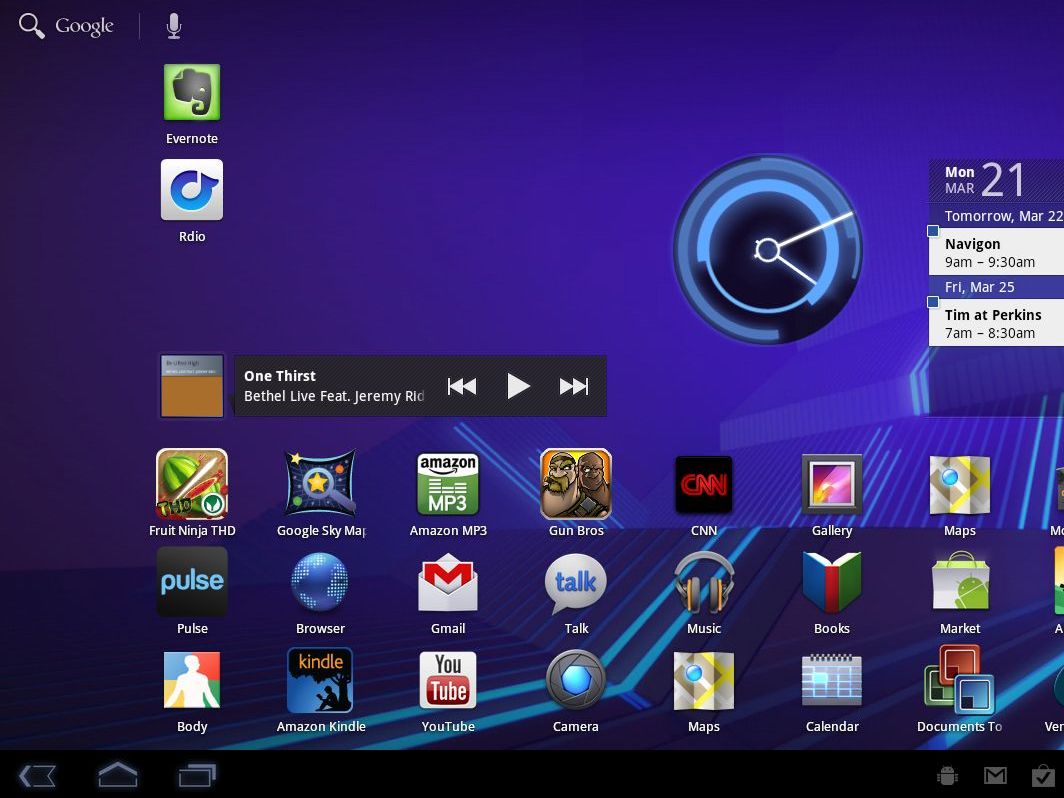Will your next PC be running Android?
People want a more consistent UI across devices

Recently, I predicted that the future of the PC may not be powered by the x86 processor architecture.
With ARM chips assimilating everything from smartphones to cars, and companies like Nvidia working on high performance CPUs based on the ARM architecture, the assumption that x86 will continue to dominate the PC no longer looks iron-clad.
One of the key catalysts for that realisation was Microsoft's announcement that Windows 8 would support x86 and ARM. If Microsoft is picking up on a trend, you know it has momentum.
The thing is, if it makes sense to question one half of the Wintel alliance, surely it makes sense to question the other. If today's PCs largely run Windows on x86 processors, could tomorrow's be Android on ARM?
A big part of the answer depends on how well Microsoft and Google execute in the coming years. Both outfits have inconsistent recent track records when it comes to their key operating systems.
Broken Windows
In the context of a company as wealthy and mind-rich as Microsoft, for instance, it's fair to say that Windows Vista was a disastrously bad operating system. Similarly, as much of an improvement as Windows 7 represents, it has its flaws.
Sign up for breaking news, reviews, opinion, top tech deals, and more.
Touch support remains rudimentary. For starters, very little effort has been put into rejigging Windows' mouse-optimised splurge of buttons and icons to suit manual prods and swishes. What's more, despite 3D acceleration, touch-driven animations are still clunky.
I marvel at the fact that my six-core, 12-thread ultra-PC fails to scroll webpages as smoothly as my battered smartphone. It's pathetic.
Android on the up
As for Android, it launched with more of a fizzle than the bang everyone expected from Google. At best, it was a workmanlike, functional operating system for smartphones. Not the slick and sexy iPhone-eater I'd hoped for.
Since then, however, incremental upgrades have seen the Android proposition get stronger and stronger. Crucially, Google is also tackling the tablet problem head-on with a slate-optimised version of Android.
The iPad aside, the burgeoning market for tablets is dominated by Android devices. Of course, smartphones and tablets aren't PCs. Likewise, I'm certainly not arguing that the prod, pinch and swipe gestures that work so well on portable devices make sense in the context of serious content creation on a desktop machine. But I do think consumers are increasingly going to demand a more consistent user experience across all their digital devices.
Tablets to cars to desktops?
A great recent example of how this might happen in reality is an announcement from Saab. Its next infotainment platform, IQon, will be the first in-car system based on Android. The harsh truth is that Saab's decision to go with Android probably has more to do with money that it does any desire for technical innovation.
Since Saab split from parent company GM, it can no longer pick a platform off the corporate shelf, and lacks the resources to develop its own from scratch. Instead, Saab has rolled the dice on Google and Android, and the result, you'd hope, will be much more seamless syncing - of both data and interface metaphors - between smartphones and in-car systems.
Frankly, why shouldn't your favourite apps appear on both? Sharing the same OS makes that much easier. With that in mind, it's possible to imagine a scenario where consumers increasingly buy into a single interface and user experience. If their smartphone, tablet and car run the same smoothly integrated set of apps, surely they'll want their PC to do the same thing?
As it happens, the car industry provides another great example of how this might happen. At the Geneva auto show earlier this year, Volkswagen rolled out the Microbus Bulli concept. Externally, it was a mild rehash of a very similar-looking show car from back in 2001.
The real interest was inside - a fully integrated iPad dock. Simply slot in your device and it assumes control of key in-car systems, including navigation, communication, entertainment and climate control. It's hardly an enormous leap to imagine a docking station that transforms tablets and smartphones into powerful desktop machines.
What I find difficult to picture is a Windows operating system at its heart. But all might not be lost. Windows 8 is expected to roll out in 2012, and we've seen that it'll feature a slick-looking touch interface, so I'll give Microsoft the benefit of the doubt until then.
Technology and cars. Increasingly the twain shall meet. Which is handy, because Jeremy (Twitter) is addicted to both. Long-time tech journalist, former editor of iCar magazine and incumbent car guru for T3 magazine, Jeremy reckons in-car technology is about to go thermonuclear. No, not exploding cars. That would be silly. And dangerous. But rather an explosive period of unprecedented innovation. Enjoy the ride.